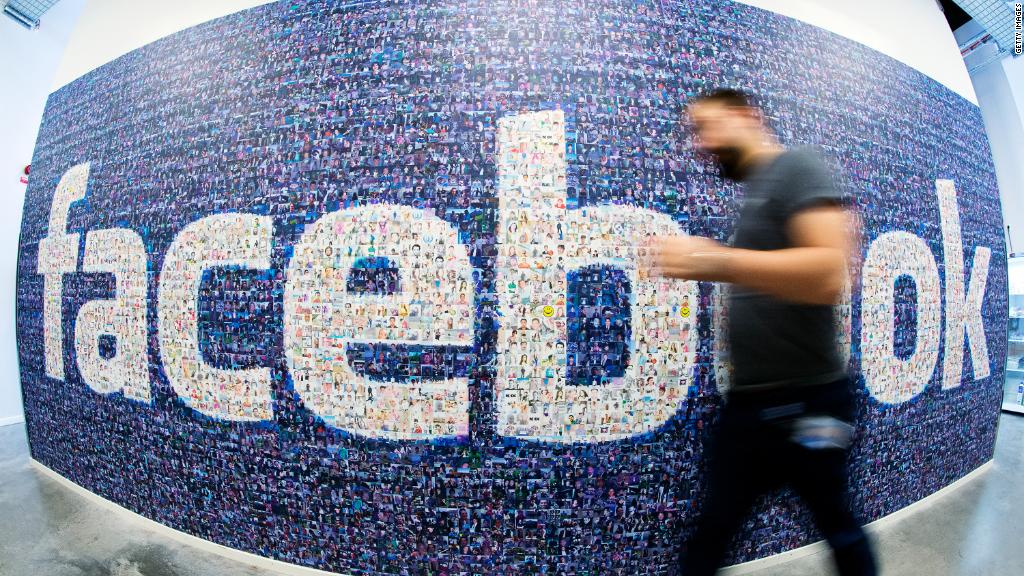
Facebook's data scandal has gotten a lot more personal for millions of users.
On Monday, the social network began notifying 87 million users that their information was likely shared with Cambridge Analytica, a political data firm that worked for Donald Trump's presidential campaign.
Although many Facebook users woke up on Tuesday morning with an alert at the top of their News Feed, not all accounts have yet been notified.
If you're like me and didn't see a notification in your Facebook app or on desktop, you can click here to find out if your data was collected.
But affected Facebook users aren't sure what to do after learning birthdays, hometowns and more personal information, such as private messages, were collected by Cambridge Analytica.
The short answer? Not much, for now.
Even if you delete your Facebook account, or remove third-party apps connected to your profile, the third-party apps will still have access to data they previously collected. Users have to contact the app individually to have the data be removed
Related: You had Facebook data questions. I have answers.
"The reality is there is no putting the genie back in the bottle," Justin Hendrix, executive director at NYC Digital Media Lab and data privacy activist, told CNN. Hendrix was notified that one of his Facebook friends used a personality quiz app called This is Your Digital Life that collected user data. His information was also likely collected in the process.
While only 270,000 people accessed the app, those who did engage with it granted Cambridge Analytica access to not only to their own information, but to the data of all their Facebook friends. "I anticipated I would potentially be affected, but at the same time, it brings it home that this is real," said Hendrix.
According to a notice on affected accounts, the "small number of people" who accessed the app also shared their News Feed, timeline, posts and messages. A Facebook spokesperson confirmed that 1,500 users who logged into the app granted explicit access to their private message inbox.
Facebook said it learned of the data violation in 2015 and asked Cambridge Analytica to delete the data at the time. CEO Mark Zuckerberg appeared before Congress on Tuesday at a joint hearing of the Senate Judiciary and Commerce committees to discuss the data scandal.
For now, the platform is directing people to their Settings page to see which apps are connected to their accounts, such as Uber and Netflix. Users can also disconnect those apps.
"They will also be able to see what apps they have deleted in the past," the spokesperson said.
Users can also see the data Facebook has collected on you over the years. To do so, visit, Settings > General > Download a copy of your Facebook data.
Adam Hobin, an Atlanta-based Facebook user, told CNN he's "highly considering" leaving Facebook after discovering his personal information was shared with Cambridge Analytica. "This notice should've come out in 2015," he said.
Related: Facebook CEO apologizes for failing to protect users
Walt Mossberg, a veteran tech reporter and cofounder of tech website Recode, urged Facebook to let users know which friends accessed the app and when.
"I'd like to at least know who this friend was, and when it happened," he tweeted. "An acknowledgment that this info went to Cambridge Analytica, which worked for Trump, should have been there. And a mature company would have apologized in the body of this notice."
He continued: "Thanks, @facebook, for allowing an unidentified friend of mine to unknowingly expose some of my information to an unscrupulous app, & then waiting until you were in trouble years later to let me know, in very vague terms."
Some users have rallied behind efforts for Facebook to be regulated in the US -- something Zuckerberg suggested he would be on board with.
"I do think we can pick up the phone and call our lawmakers and say, 'Why aren't there rules? Why aren't there repercussions?'" said Hendrix, who recently launched an advocacy project called Regulate Social Media.
Professor David Carroll -- an associate professor at Parsons School of Design, who sued Cambridge Analytica to find out what it knows about him -- is a collaborator on the project.
-- CNN's Kaya Yurieff, Gianluca Mezzofiore, and Donie O'Sullivan contributed reporting.

